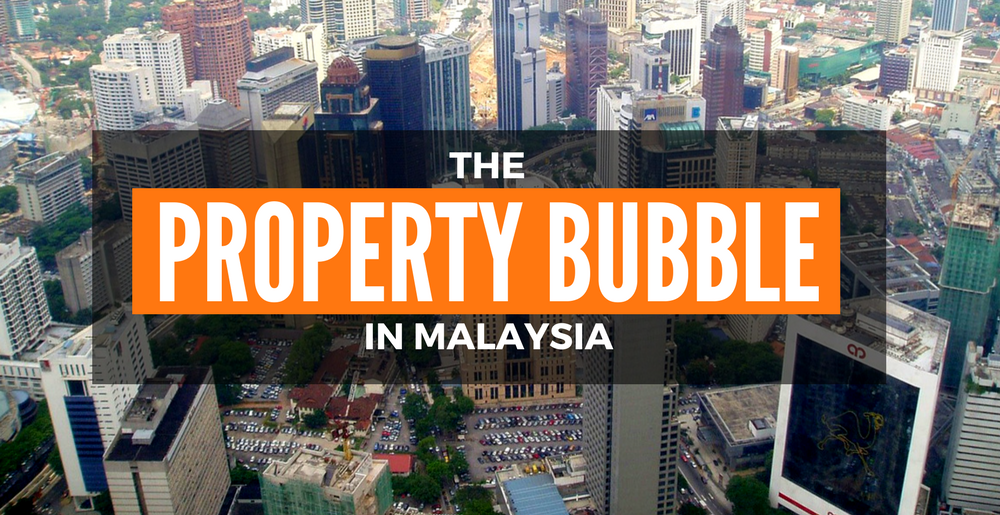There have been a lot of opinions and speculations going around about the property market recently.
One catalyst of discussion was an article published on Free Malaysia Today titled “Property market will be badly hit in 2018, says expert”
“Cheong expects the prices of houses to fall from RM500,000 to RM300,000.”
On top of that statement, Putrajaya announced that it will be putting a halt to approvals for shopping complexes, offices, serviced apartments, and luxury condominiums priced over RM1 million in the city—only to tell us that the halt “isn’t absolute“.
Since the initial article, a particularly insightful post written by Mark Chua—a senior banker of 17 years—has been making circles on Facebook.
A particularly captivating quote from Mark is:
“Research by the University of Chicago indicates that for every RM100k decrease in the value of your property, consumer spending will drop by RM3k per year.”
“If property prices really drop from RM500k to RM300k, buying a property will be the least of our bloody concerns. The average Malaysian will have other f*cked up problems to worry about; namely plummeting consumer confidence, lower retail spending and higher unemployment!”
Makes sense, but we wanted to hear more insight from other insider voices. So we reached out and got answers from 3 industry insiders who live and breathe property.
What do they think about predictions of the property bubble bursting?
Gadiy Lim is the founder of Bumbung—a Malaysian startup that facilitates the match between agent and potential buyer. And he is inclined to disagree with the theories of a bubble burst in 2018.
“In my opinion, the cooldown measures this time round have got to do with affordability, as most property projects are targeted towards the above average instead of the lower average income for Malaysians.”
Wong Whei Meng is the founder of Speedrent, an app that matches owners with potential tenants, instead of buyers. And he thinks that this is all about the imbalance in supply and demand.
“Media has been reporting this for a few years now—most of the properties built were geared towards high-end projects. The public at large couldn’t afford this. I believe the high-end projects are the ones have highest risk of property burst.”
On whether a RM500k property will drop to RM300k—”I don’t think it would be this drastic on secondary transaction,” said Whei Meng.
This is true for him even if he thinks that “investors who do not have strong holding power are willingly to let go at lower price to avoid auction”.
A member of property media has also weighed in on this. Charles Tan is the Chief Editor of kopiandproperty, an independent property publication based in Malaysia.
“Just look at the listings in major property sites. If every single listing is all above RM500,000 then I think the crash which is expected may be coming true.”

“Else, it meant that there are still choices, coupled with ever more new affordable launches by the state, federal and even private developers.”
A sudden crash in property price might seem great for someone who is ready to buy, but a crash won’t happen overnight.
“In my opinion, oversupply of units, especially those of RM500k or higher is not a main trigger point. The reason is because most buyers are aiming at properties below RM400k, and not these expensive/luxury units.”
“This is the reason why developers are now focusing their attention on affordable homes.”
Instead, Charles points out other trigger points that can contribute to a bubble burst.
- Can buyers comfortably pay their mortgage, or will even a slight increase in interest cause an inability to pay?
- Unemployment: if they can’t find a job, then they’ll miss their mortgage payments, or outright sell their property at much lower prices.
“On a larger scale this will affect the sentiment of the whole market,” said Charles.
Instead, Gadiy observed that our property transactions actually increased between 2010-2012, thanks to a DIBS scheme which allowed buyers to skip on paying a single cent until property is completed.
The market is correcting itself now, but despite this, the property market has still held up even after all those years.
“A reason for this is because Bank Negara enforces strict regulations,” said Gadiy.
However, the three generally agreed that the halt on luxury property development probably wouldn’t impact the market too much.
“Even when approval was given for a new development, it will not affect the property market suddenly because a development would still need typically 3 years to complete,” said Charles.
Meanwhile, ongoing projects and what is already on the market continue to lead to this oversupply quoted by the Finance Ministry.
“I don’t think public at large would be affected by this. After all, these developments were not targeted at these segment of market,” said Whei Meng.
Instead, developers now have to rethink their strategy and start building houses that people actually want to live in, like modular homes.
“Investors should take it positively as it controls the new supply into the market (albeit a little late, but never too late),” said Whei Meng.
“It’s still uncertain as to what projects are being held back,” said Gadiy. “The impact could be huge depending on the number of projects that will be placed on hold along with the number of purchasers that have already bought the place.
Gadiy continued to say that “Those guys, along with the developers will feel the pinch the most.”
For the longer term, as long as the economy continues to move and we don’t have any sudden external shocks, Charles thinks that this halt is a positive for the market. The oversupply would be on a downtrend.
“Apart from sentiment (whether positive or negative), there are no huge changes statistically actually.”
They’re also quite positive about us moving towards a rent economy.
Whei Meng of Speedrent is predictably a big advocate for rent economy. It makes sense, in this sharing economy that has seen the rise of Uber and Airbnb, which “somewhat amplified and proliferated this new social norm”.
The aforementioned imbalance in supply versus demand is step one for many to reconsider their desire to own a house, especially with saving trends on the low-side.
“While property prices are unaffordable, it’s a natural progression.”
Whei Meng points out two other forces .
- Social Forces: Millennials are comfortable moving to a new location for job opportunity or lifestyle change. Being tied down to a specific location or huge commitment (when you own a home) may not fit this segment’s mindset.
- Regulation Forces: Budget 2018 showcases the government is looking into reformulating the rental act, which can strengthen regulations that protect tenant and landlord—a strong precursor for a strong rent economy.
“It’s been evident that the rent economy is striving forward,” said Gadiy. “There’s a saying that the rental economy is 3–5 times more than the property transactions among professionals.”
In fact, Gadiy’s startup Bumbung matches 80–90% of their property requests to rental properties.
This is because, “More than half of agents and owners feel that they are only interested in selling, because the workload to settle the documents and manage the clients are the same as renting.”
Meanwhile, Charles is a little skeptical of the rise of “sharing economy”.
“Some are using UBER or AirBnB as an example but seriously, I believe Uber drivers themselves would prefer to own a home instead of renting while AirBnB is expanding so fast because of owners who were renting out their homes.”
Despite this, Charles notes that rent economy has been predicted even in countries outside of Malaysia, and this has been ongoing for years. It still won’t stop people from buying, though, even in advanced property markets.
“If there are people willing to rent, then it’s better to be the owner and not the tenant. However, let’s understand that right now, tenants are happy because choices are aplenty due to the oversupply of units.”
He also voiced his support for renting schemes by the government for the people, because these affect a different segment of the population.
“Everyone needs a roof over their head if they are to continue to work and support themselves, their family and ultimately the economy. I hope every stakeholder would take note of the recent 6 policy options from the Bank Negara Malaysia.”
– Charles









